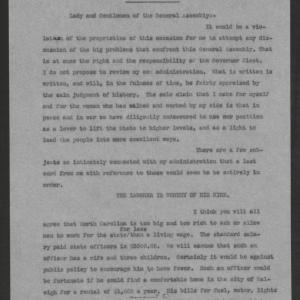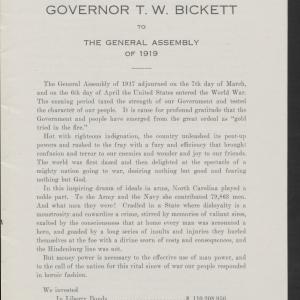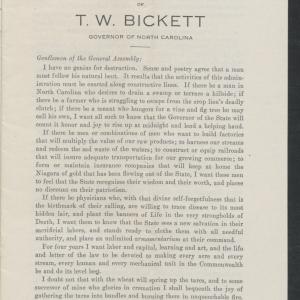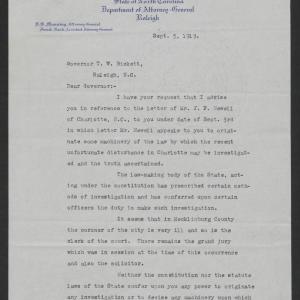- Transcription
Copy
Charlotte, N.C., Sept 29, 1919.
Mr. A. M. McDonald,
Chairman of Board Commissioners,
Mecklenburg County,
Dear Sir:-
In response to your inquiry as to the right or duty of the newly appointed coroner to inquire into the cause of the death of certain persons at the car-barns in this city some weeks ago, beg to say that the statute provides:
"It shall be the duty of the several coroners, wherever it is made to appear, by the affidavit of some responsible person that the deceased probably came to his death by the criminal act or default of some person or persons, or at the request of the solicitor, to go to the place where the body of such deceased person is, and forthwith to summon a jury of six good and lawful men," for the purpose of holding said inquisition.
We find upon investigation that our Supreme Court in case of State V. Knight 84 N.C. 789 has declared:
"And to make a valid inquest the coroner and jury must have a view of the body, and the latter must be sworn by the former in the presence of the body."
We also find upon further investigation that any inquest held, except over the body of the deceased is invalid." "The inquest to be valid must be held, super visum corporis, that is the coroner and the jury must have a view of the body. Consequently where the body cannot be found, or is too decomposed for view, the coroner has not authority to proceed with the inquest." 13 Corpus Juris, page 1249.
Again,
"A coroner has no power to take an inquisition of death without a view of the body, and any such inquest taken by him without such view is merely void. Unless it be an inquest super visum corporus, it is wholly an extra-judicial proceeding." Six Ruling Case Law, page 1169.
To like effect is 9 Cyc., page 988, where it is said:
"The inquest to be valid must be held super visum corporis that is the coroner and jury must have a view of the body." It would, therefore, appear to be unquestionable that in order to give the coroner jurisdiction to hold an inquest for the purpose of investigating as to the cause of, and responsibility for, the death of the persons above mentioned, their bodies would have to be exhumed so that the coroner and the jury may both view and examine the bodies, as a part of said inquisition. It is our opinion that the coroner would have no such authority, unless ordered by the court to do so, after notice to the relatives of the decease, and not even then, if the bodies should be too decomposed either to be examined with safety or to furnish evidence as to the cause of the death.
However, this dilema should not at all embarras the law officers of the County in investigating this matter, as the grand jury is in session with all the powers and authority necessary to make an ex parte investigation, and should this not be desirable, any responsible person can swear out a warrant before either the recorder or any magistrate in the township against any person or persons suspected of having unlawfully caused the deaths of the persons in question, before whom as full and thorough investigation may be had as before the coroner.
Yours very truly,
[signature obscured by fold]





